Volunteer Computing for Hubs
Category
Published on
Abstract
Volunteer computing is a low-cost way to increase the computing power of science portals. In this approach, groups of jobs submitted to a portal are executed on the desktop and laptop computers belonging to portal participants or to the general public. We are adding this capability to HUBzero by integrating it with BOINC, a middleware system for volunteer computing. I will explain how BOINC works and how it meshes with Rappture, the application framework used by HUBzero.
Bio
Dr. David P. Anderson is a Research Scientist at the University of California, Berkeley. He directs the BOINC project, which develops middleware for volunteer computing. Dr. Anderson received graduate degrees in Mathematics and Computer Science from the University of Wisconsin, Madison. His research interests include volunteer computing, distributed, real-time and multimedia systems, computer graphics, and computer music.
Cite this work
Researchers should cite this work as follows:
Submitter
Nikki Huang
Purdue University
Tags
-
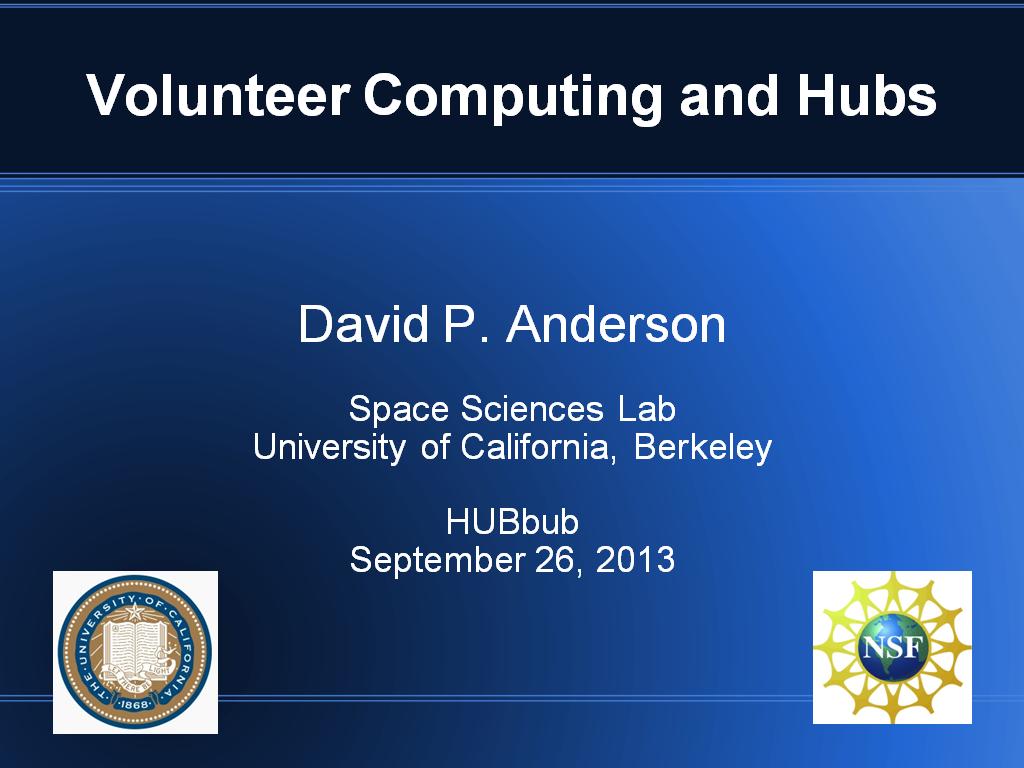 1. Volunteer Computing and Hubs
0
00:00/00:00
1. Volunteer Computing and Hubs
0
00:00/00:00 -
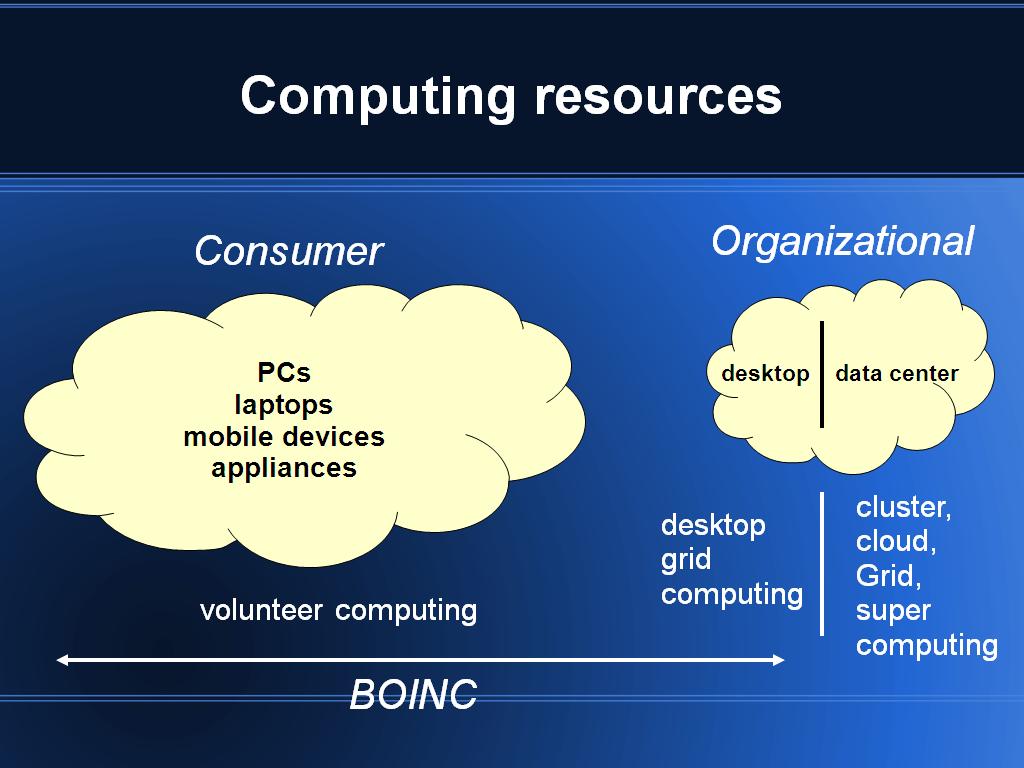 2. Computing resources
43.877210543877212
00:00/00:00
2. Computing resources
43.877210543877212
00:00/00:00 -
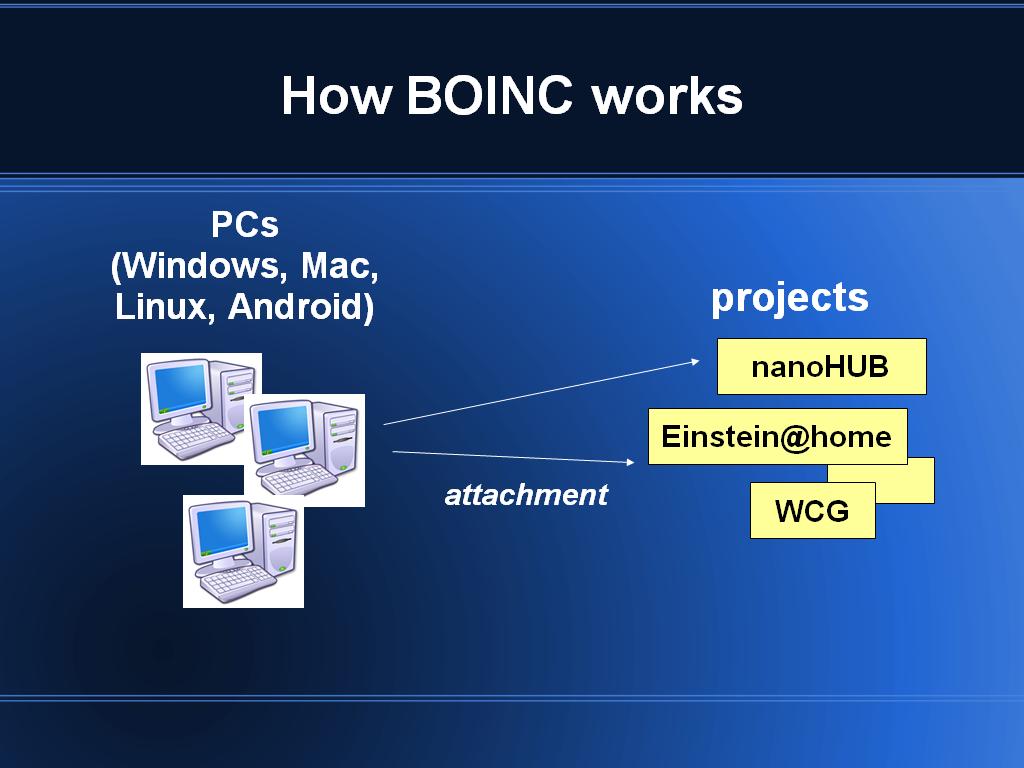 3. How BOINC works
129.39606272939608
00:00/00:00
3. How BOINC works
129.39606272939608
00:00/00:00 -
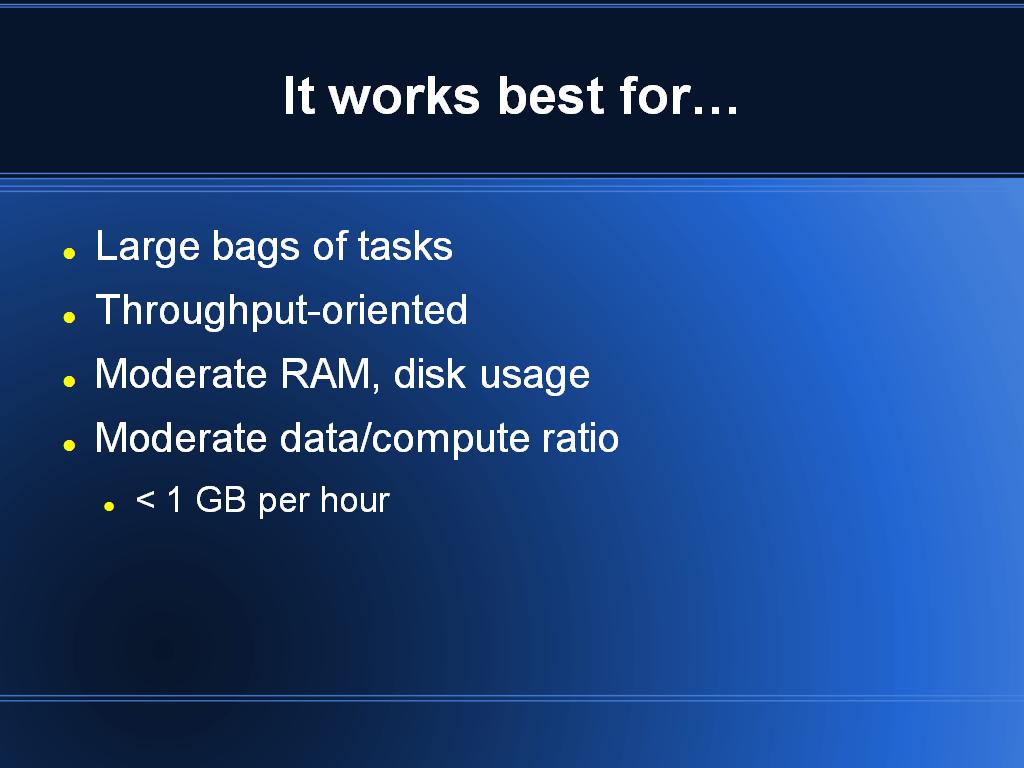 4. It works best for…
339.93993993993996
00:00/00:00
4. It works best for…
339.93993993993996
00:00/00:00 -
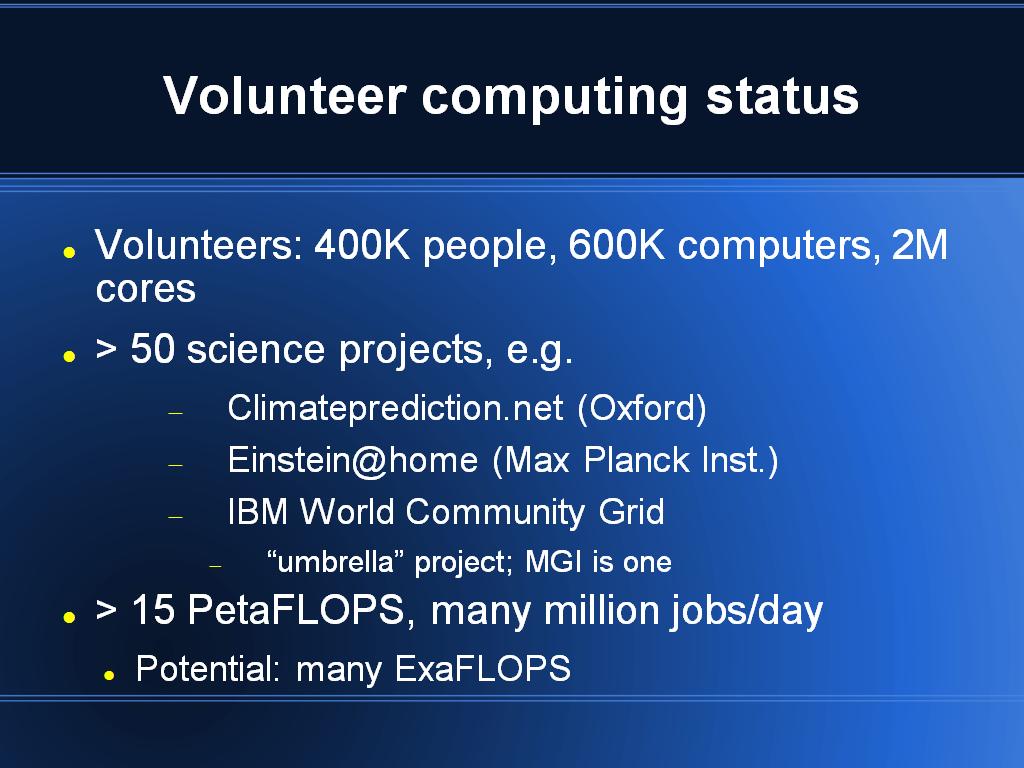 5. Volunteer computing status
436.83683683683688
00:00/00:00
5. Volunteer computing status
436.83683683683688
00:00/00:00 -
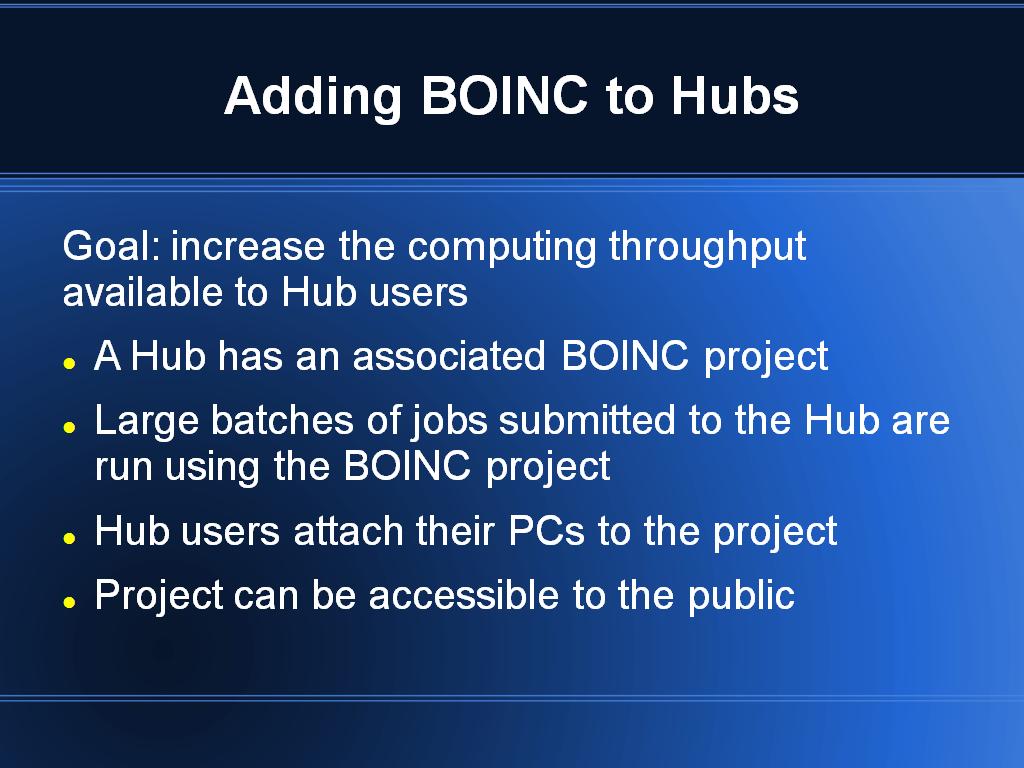 6. Adding BOINC to Hubs
695.32866199532873
00:00/00:00
6. Adding BOINC to Hubs
695.32866199532873
00:00/00:00 -
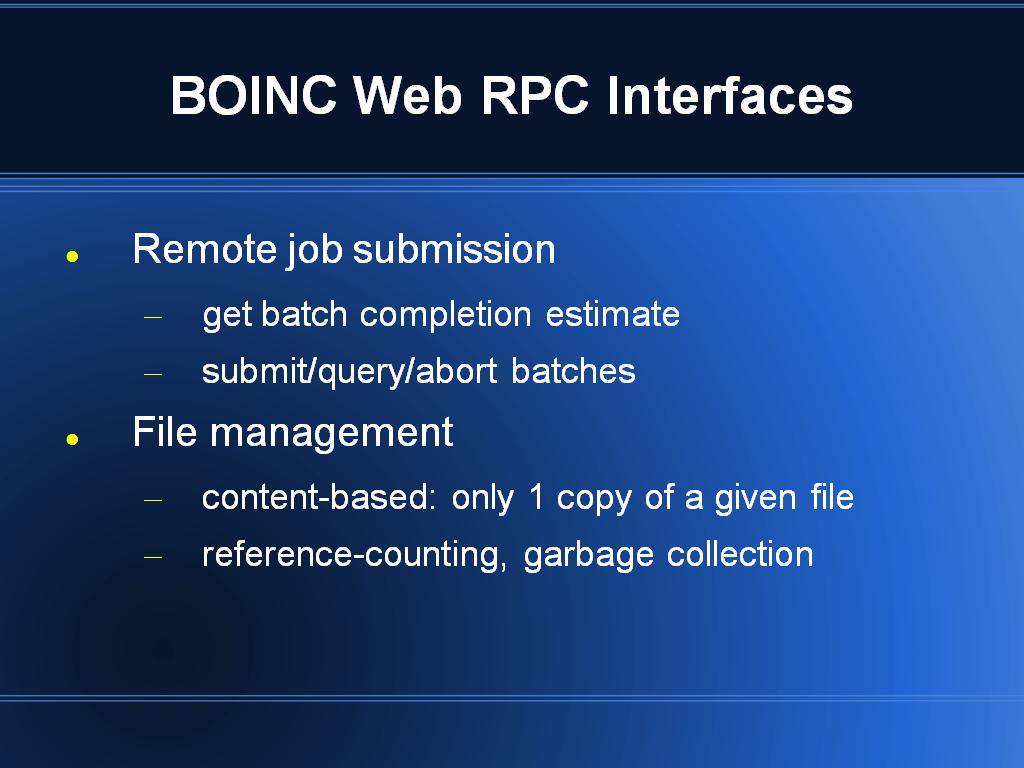 7. BOINC Web RPC Interfaces
830.53053053053054
00:00/00:00
7. BOINC Web RPC Interfaces
830.53053053053054
00:00/00:00 -
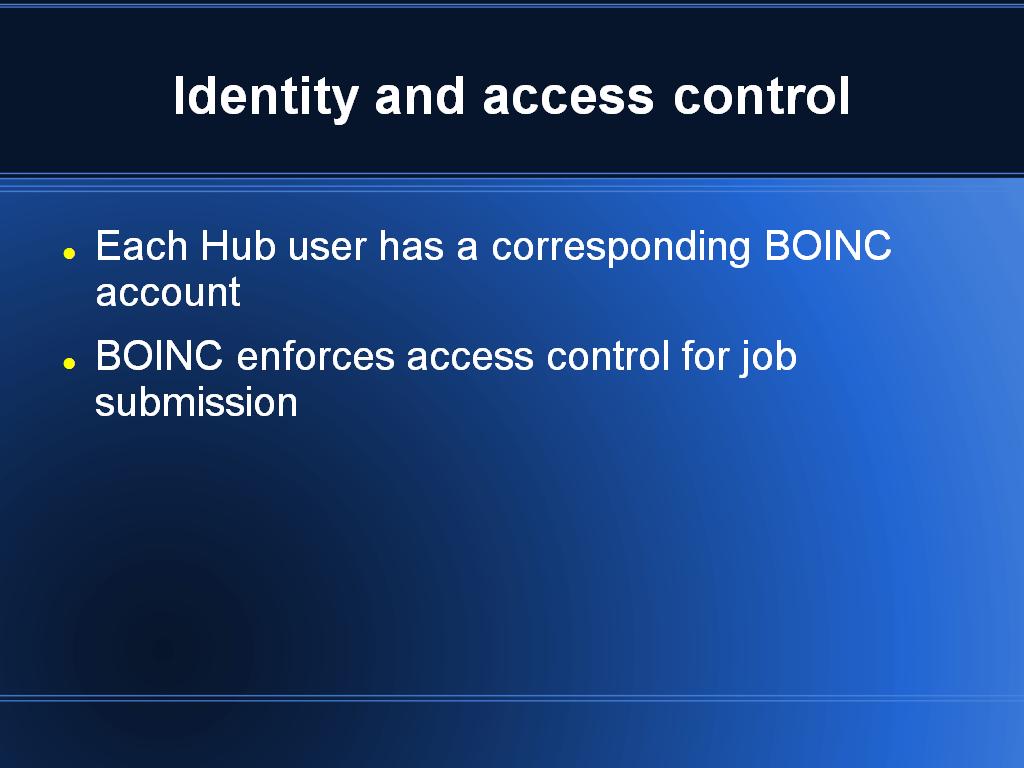 8. Identity and access control
956.18952285618957
00:00/00:00
8. Identity and access control
956.18952285618957
00:00/00:00 -
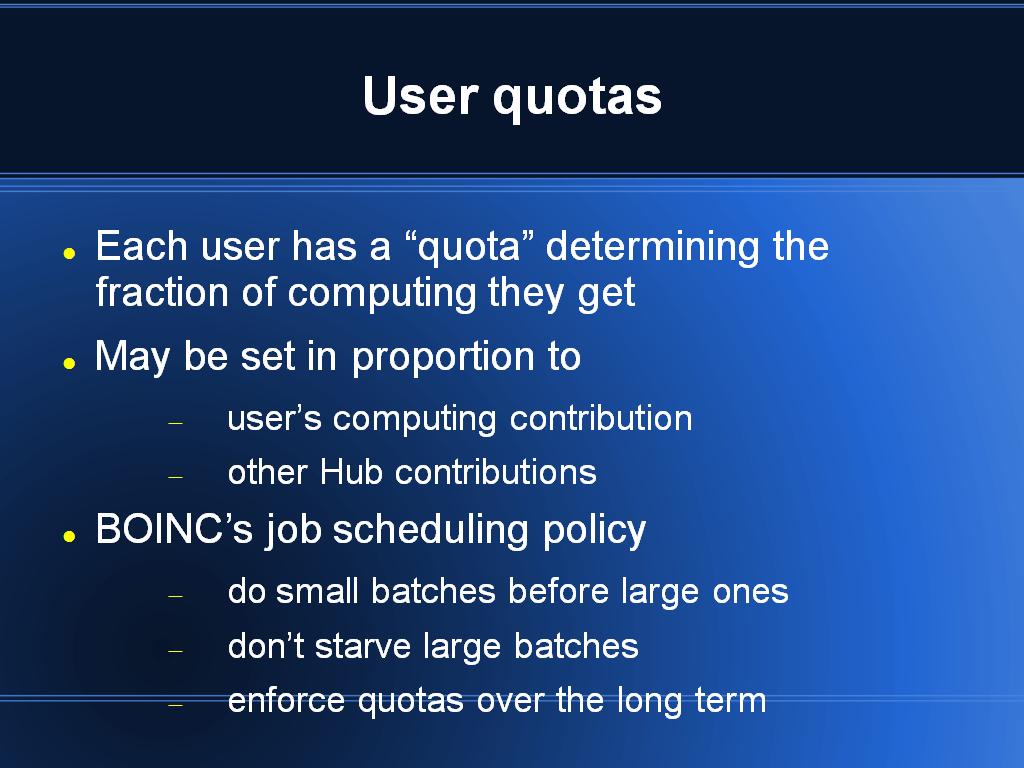 9. User quotas
1014.9149149149149
00:00/00:00
9. User quotas
1014.9149149149149
00:00/00:00 -
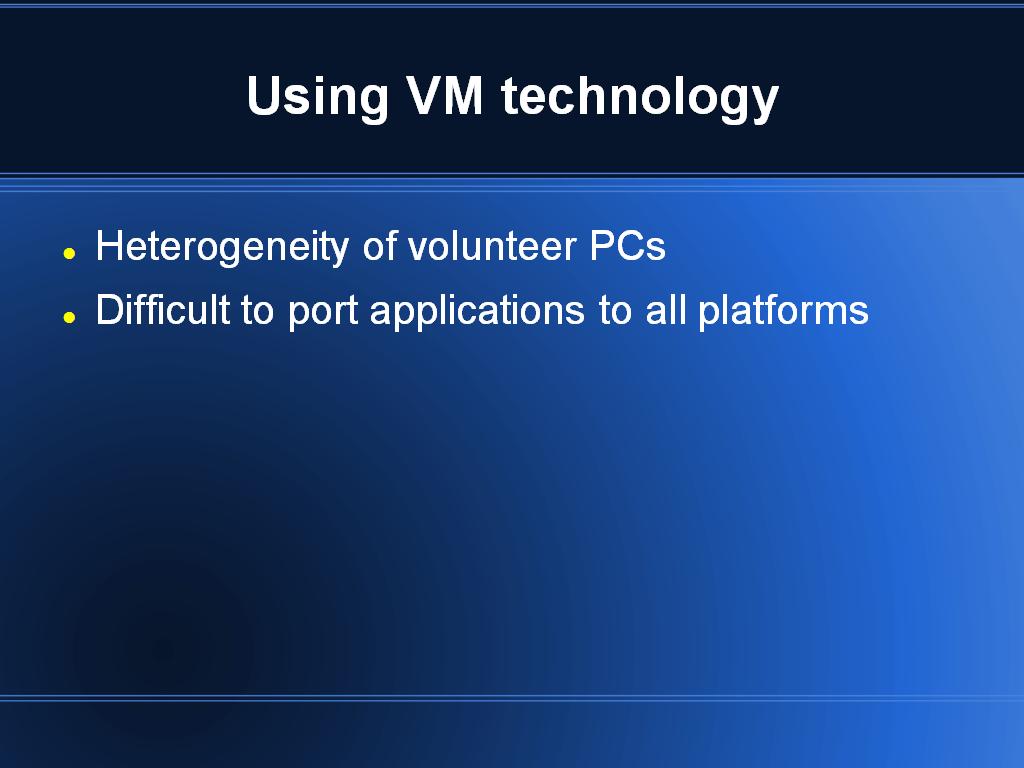 10. Using VM technology
1110.4437771104438
00:00/00:00
10. Using VM technology
1110.4437771104438
00:00/00:00 -
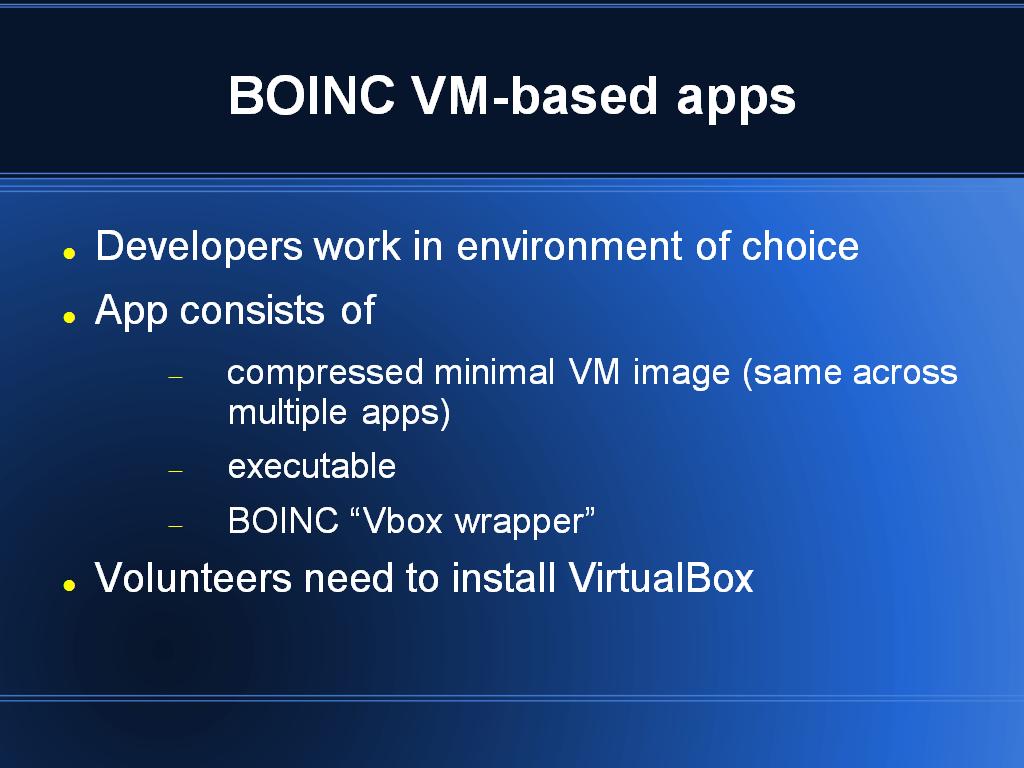 11. BOINC VM-based apps
1151.4848181514849
00:00/00:00
11. BOINC VM-based apps
1151.4848181514849
00:00/00:00 -
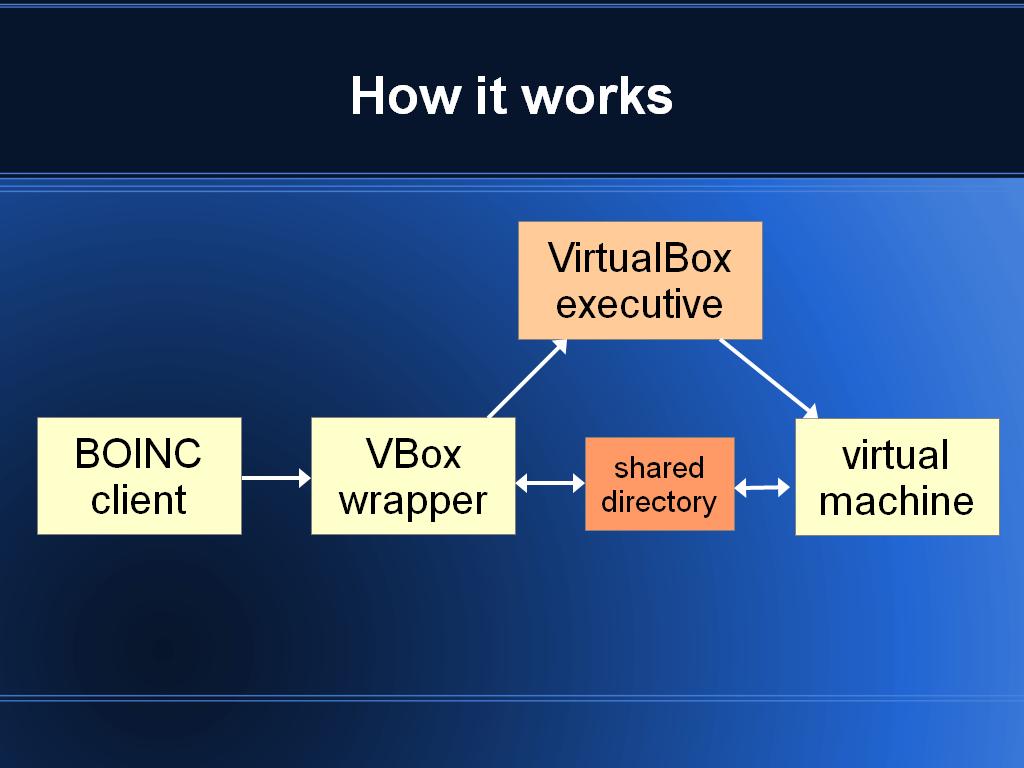 12. How it works
1219.019019019019
00:00/00:00
12. How it works
1219.019019019019
00:00/00:00 -
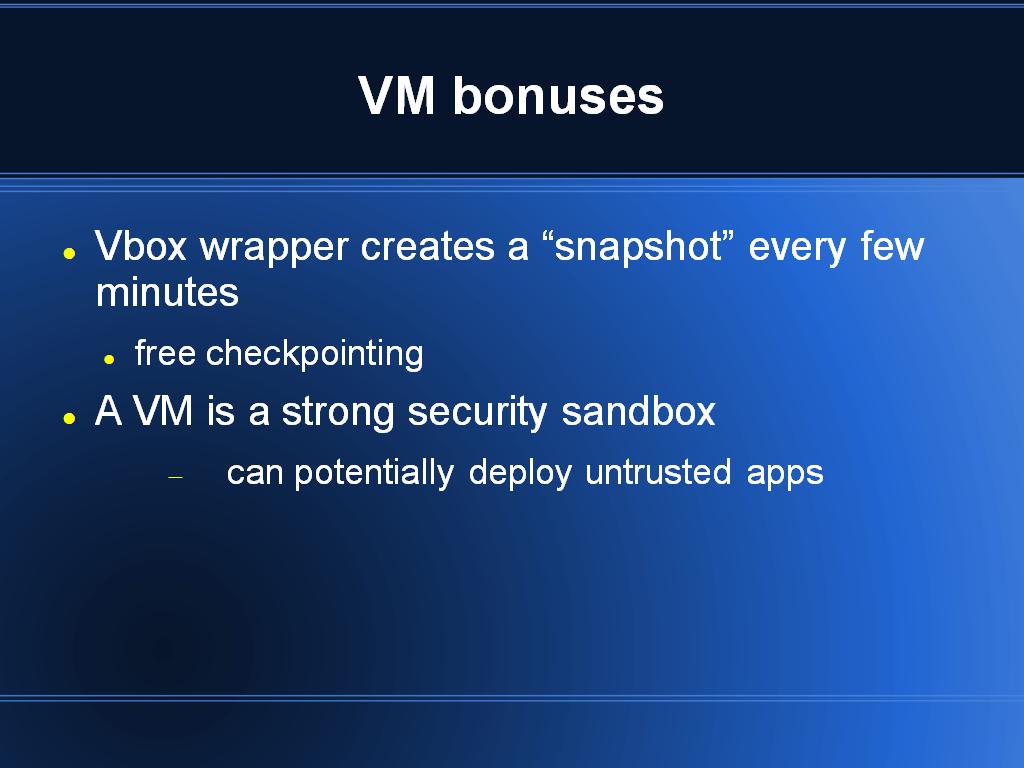 13. VM bonuses
1278.3783783783783
00:00/00:00
13. VM bonuses
1278.3783783783783
00:00/00:00 -
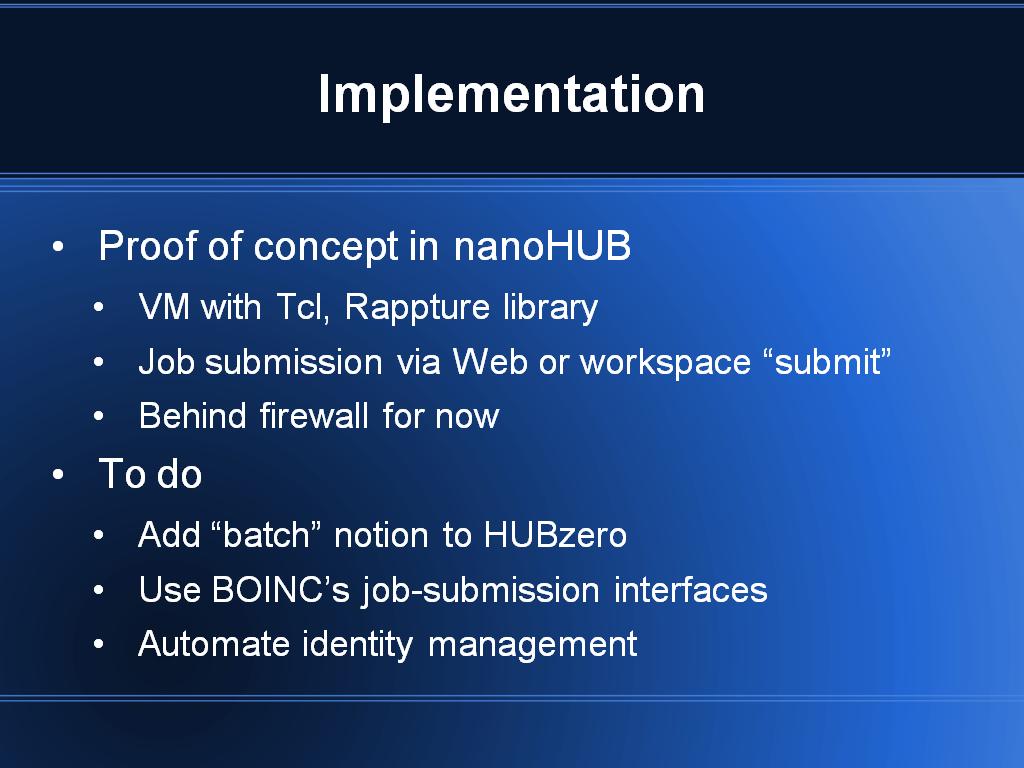 14. Implementation
1349.8832165498832
00:00/00:00
14. Implementation
1349.8832165498832
00:00/00:00 -
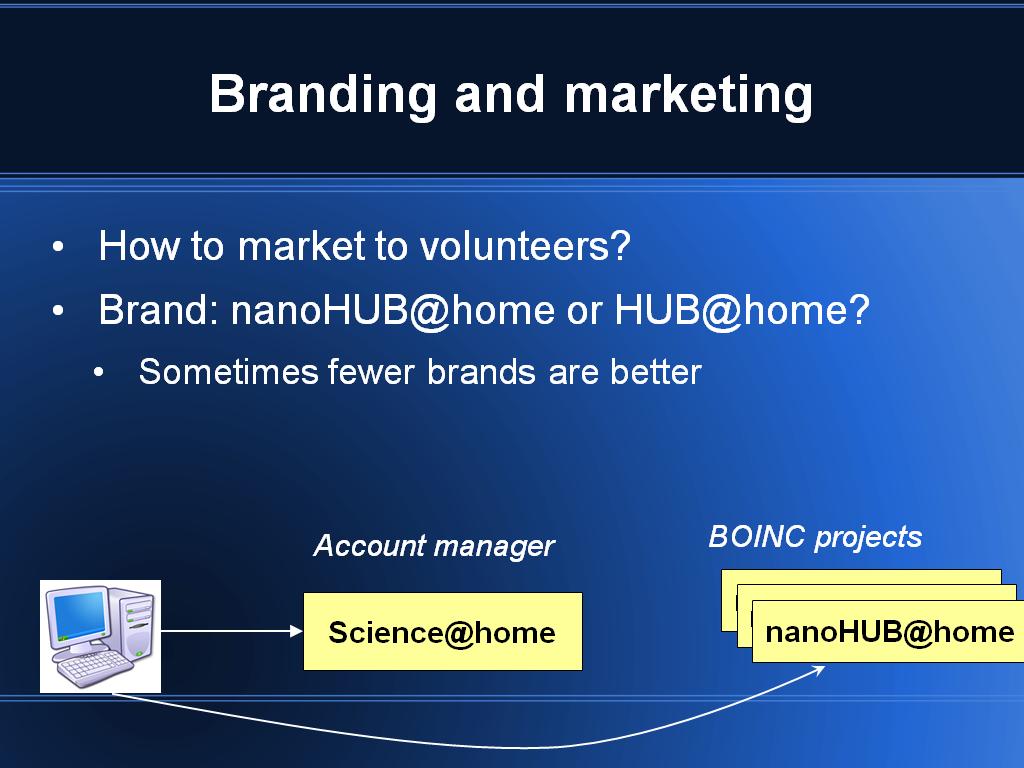 15. Branding and marketing
1439.4394394394394
00:00/00:00
15. Branding and marketing
1439.4394394394394
00:00/00:00 -
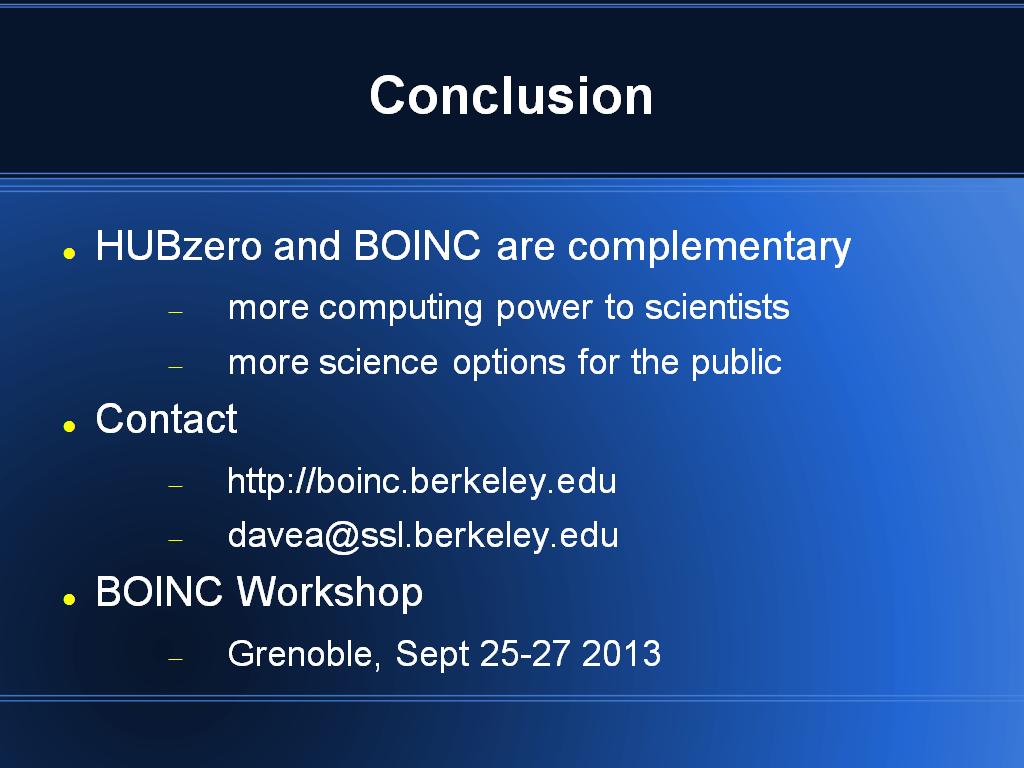 16. Conclusion
1598.5652318985653
00:00/00:00
16. Conclusion
1598.5652318985653
00:00/00:00